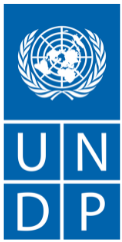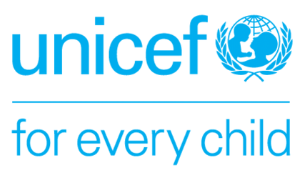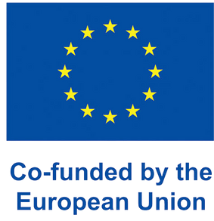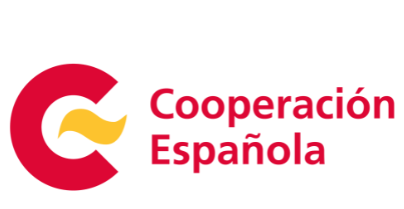INFF in International Forums
UN Member States first introduced the concept of Integrated National Financing Frameworks (INFFs) in the 2015 Addis Ababa Action Agenda, the outcome of the Third International Conference on Financing for Development (FFD3). The agenda sets a framework for financing the Sustainable Development Goals (SDGs) through seven action areas.
UN Member States introduced INFFs to bring together these action areas across public and private finance at the country level to support national sustainable development plans. In this way, INFFs represent a key commitment of the Addis Ababa Action Agenda at the country level.
“Cohesive nationally owned sustainable development strategies, supported by integrated national financing frameworks, will be at the heart of our efforts.” - Addis Ababa Action Agenda, 2015
Since their introduction in the Addis Ababa Action Agenda, country-led INFFs have been recognized and supported by numerous international agreements and initiatives within the Financing for Development Track, as well as other forums.
On this page, you will find key endorsements and commitments from the international community to support country-led INFFs.
For the engagement with G20, please visit this page.
Financing for Development (FFD) Conference and Forums
As the follow-up track to the 2015 Addis Ababa Action Agenda where INFFs were first introduced, the annual Financing for Development Forum is a place to review the implementation of INFFs. Sessions to review progress in implementing INFFs were held annually in the FfD Forums.
In the Compromiso de Sevilla, the Outcome Document of the 2025 Fourth International Conference on Financing for Development (FfD4), UN Member States reaffirmed and expanded their commitment to INFFs. INFFs are recognised as central to country-led financing and as catalysts for stronger fiscal systems, sustainable investment and business practices and development cooperation aligned with national priorities. They are also highlighted as a key initiative under the Sevilla Platform of Action to scale up country-driven approaches to financing sustainable development and climate action.
Support for countries in special situations: Least developed countries (LDCs), Small Islands Developing States (SIDS) and landlocked developing countries (LLDCs)
The United Nations recognises the distinct needs of three groups of countries in special circumstances: least developed countries (LDCs), small island developing states (SIDS) and landlocked developing countries (LLDCs). Programmes of action for each of these groups of countries are designed to respond to and support these countries within the context and challenges they face. INFFs have been recognised in three programmes of action.
Doha Programme of Action for the Least Developed Countries (April 2022)
In the Doha Programme of Action (DPoA), Least developed countries (LDCs) reaffirmed their commitment to a comprehensive global partnership for LDCs, fully aligned with the SDGs and the Addis Ababa Action Agenda. The DPoA underscores the importance of fulfilling international commitments related to official development assistance (ODA), market access, debt relief, technology transfer, technical assistance, and capacity-building, highlighting the role of INFFs in providing coordinated finance and policy support to least developed countries.
The Antigua and Barbuda Agenda for SIDS (May 2024)
“Build strong institutions by: Strengthening the synergy between public policy planning and financing through integrated national financing frameworks to increase the expenditure efficiency of public resources, as a complement to resource mobilization from all sources;”
Small Island Developing States emphasized the importance of building strong institutions by strengthening the synergy between public policy planning and financing through INFFs. This approach aims to increase the efficiency of public resource expenditure, complementing resource mobilization from all sources.
Awaza Programme of Action for Landlocked Developing Countries (December 2024)
The Programme of Action for LLDCs (2024–2034) identifies INFFs as a key tool to mobilize resources, improve financial planning, and strengthen international cooperation for sustainable development.
European Commission’s High-Level Expert Group on Scaling Up Sustainable Finance in Low- and Middle-Income Countries (April 2024)
"EU partner countries’ governments could benefit from EU support and experience to clarify their sustainable roadmaps, related investment plans (e.g. integrated national financing frameworks) and so the private sector sees the direction of travel.”
Convened by the European Commission, the expert group highlighted the practical application of INFFs. It emphasized that EU partner countries' governments can use INFFs to clarify their sustainable roadmaps and investment plans. This clarity helps the private sector understand the necessary reforms and policies, thereby facilitating both local and global private investments.
United Nations Secretary-General’s SDG Stimulus to Deliver Agenda 2030 (February 2023)
In February 2023 the United Nations Secretary-General launched the SDG Stimulus to deliver Agenda 2030. The SDG Stimulus emphasizes the need for the international community to collectively implement necessary changes and for countries to adopt national policies that align all financing flows with the SDGs. INFFs are highlighted as critical tools in this effort. The SDG Stimulus highlights how they help determine the optimal finance mix for countries and identify how resources can be mobilized and redirected to support sustainable development.
The SDG Stimulus calls for a comprehensive re-prioritization of investments to better prepare societies for future shocks and to ensure just transitions amid digital, demographic, and green transformations. INFFs are essential for operationalizing the SDG Stimulus at the national level, enabling countries to set out their priorities and key financing policies, especially in sectors vital for resilience such as universal social protection, decent job creation, re-skilling, and lifelong learning programmes.
The SDG Stimulus was re-emphasized as one of the High Impact Initiatives launched at the 2023 SDG Summit.











.png)


